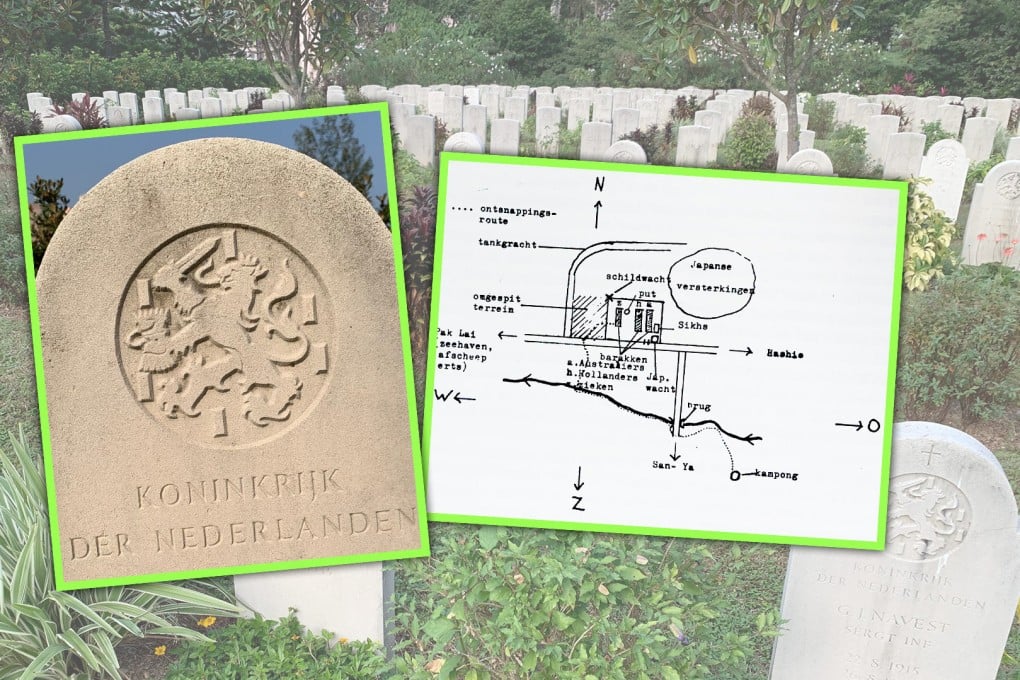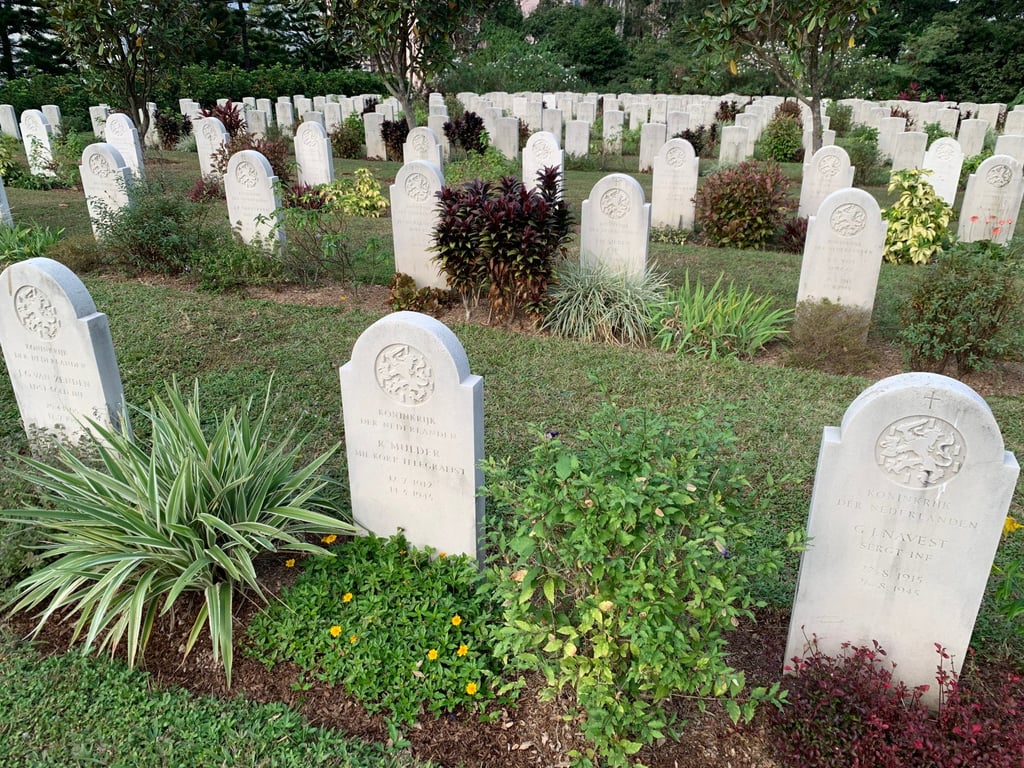Unearthing stories of bravery, camaraderie and tragedy of 72 courageous Dutch World War II soldiers buried in Hong Kong
- Most of the soldiers died in Hainan POW camp after their capture in Indonesia
- They struggled through brutal treatment in the camp with malnutrition and disease being most likely cause of death

The Sai Wan War Cemetery in Hong Kong is the final resting place for 1,528 Commonwealth soldiers who died during World War II, with most of the graves belonging to British, Indian, and Canadian service members who died during the Battle of Hong Kong or in subsequent POW camps.
But the military cemetery is also the final resting place of 72 Dutch soldiers, none of whom died during that defining moment in the city’s history, with only two of them dying in Hong Kong itself, according to a new study published in the Journal of the Royal Asiatic Society Hong Kong.
The vast majority – 55 of them – died at a Japanese prisoners-of-war (POW) camp on Hainan Island in southern China. An additional 10 soldiers died in Taiwan POW camps, while four died in a plane crash off the island. The two deaths in Hong Kong were unrelated to the Battle of Hong Kong, and one soldier died on a hospital ship.
“The major takeaway was realising the 72 Dutch buried at Hong Kong’s Sai Wan War Cemetery were not related to the Battle of Hong Kong but instead related to lesser-known engagements and events during the Pacific War,” said Justin Ho, a history researcher and author of the study.
What did emerge was remarkable tales of bravery, camaraderie, and tragic irony for soldiers put under unimaginably difficult circumstances.

The soldiers that died in Hainan were captured during the Battle of Ambon (January 30 – February 3, 1942), a Japanese offensive in which they captured Ambon Island and its strategic airbase in a matter of days. The captured Allied soldiers were transported to the Hachow POW camp in Hainan.